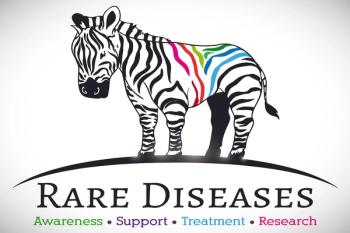
Genetic Testing and the Moral Dilemma of Testing
Transcript:
Peter L. Salgo, MD: This is going to come down now to diagnosis. I know there’s genetic testing. The question I am sure that comes up is, does everybody with a genetic predisposition to this disease develop the disease? Because the question that would come to my mind if I were somebody at risk is, are you going to tell me I’m going to get it, but then I won’t?
John Brandsema, MD: Yeah. I think 1 of the most challenging things for people who know that this runs in their family is that it is an autosomal dominant disorder. So you have a 1-in-2 chance of inheriting the predisposition to this disease from your parent if your parent is affected. But it’s difficult to predict when in your life you’re actually going to start manifesting symptoms if you are affected as a carrier. People face the choice of when in their life do they choose to pursue genetic testing, and if they know that information, how will that affect their thinking about their future and their overall life goals?
I think there can be a really challenging ethical discussion. For example, do you test a child if a parent is affected? Most people would say, no, because the information wouldn’t change anything about the management of the child at the time and the classical natural history. You want a person to make an informed decision about whether they want to know about information, so you would wait until they were cognitively able to go through that process for themselves. But then sometimes a person’s perspective on that also changes as their life changes through their own experiences. So this can be a really changing ethical issue.
Peter L. Salgo, MD: But let me nail several questions here so that we at least address them, and we can then dismiss them. Does everybody who has the genetics for Huntington actually get the disease?
John Brandsema, MD: I think if you have a short enough repeat link, you may just be able to pass it along, but you may not actually manifest it yourself.
Peter L. Salgo, MD: Even if you get tested, it doesn’t guarantee—and they say, “Look, you’ve got this genetic predisposition.” It doesn’t necessarily mean you’re going to get sick.
John Brandsema, MD: Right.
Peter L. Salgo, MD: Well, that’s a heck of a test. Then it occurs to me that there are some points in your life when you might want to be tested. Certainly, if you’re 2 years old, maybe not. If you’d like to get married and consider children, maybe. Once you’re older, you want to know about yourself and how to make plans. Do people talk to you about that?
Sika Dunyoh: Sure. I think we see this in many rare diseases when it’s in your family, it’s passed down to you, and you’re not sure whether you may be affected or not. There are major points in life when we see people with rare diseases making tough decisions about whether to find out, whether to have children, and these are tough decisions to make. But for family-planning purposes, it’s important.
Peter L. Salgo, MD: But it’s hard.
Sika Dunyoh: It’s difficult.
Peter L. Salgo, MD: It’s really hard.
Sika Dunyoh: It’s very difficult.
Peter L. Salgo, MD: I don’t know. I mean, what would be worse do you think—maybe you know better than I: to live in a state of blissful, maybe not-so-blissful ignorance? Or is it worse to sit there knowing that you’re genetically predisposed­—maybe you’ll get it and maybe you won’t? What’s harder for people?
Sika Dunyoh: I think there are challenges with both. I can’t imagine personally knowing that something is running in my family, and there could be a chance that I may get it, but I choose not to find out because you never know when the other shoe will drop. On the other hand, it’s not easy finding that information out and knowing that you are inevitably going to be faced with having to deal with the disease. I think both are very challenging.
Peter L. Salgo, MD: For other diseases other than Huntington, I’ve heard people express both sides of the coin. One of the things is this: if the shoe is going to drop anyway, what difference does it make if I know it’s coming, other than for family-planning purposes? But it must be difficult.
Sika Dunyoh: It is difficult. I think that there are pros and cons for both, but I think knowing what you may be facing in the future does allow you to plan, not only for family-planning purposes but for your own personal plans, such as whether you may need to consider future living options. Maybe you may need to consider additional care in the future. Maybe you may need to consider moving into an advanced care facility. Knowing all that and knowing that may be in your future, you’ll be able to plan for it both financially and personally.
Newsletter
Stay ahead of policy, cost, and value—subscribe to AJMC for expert insights at the intersection of clinical care and health economics.









